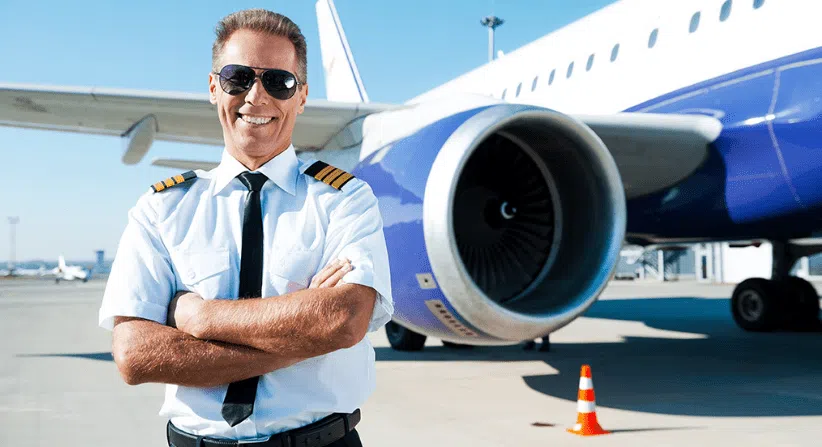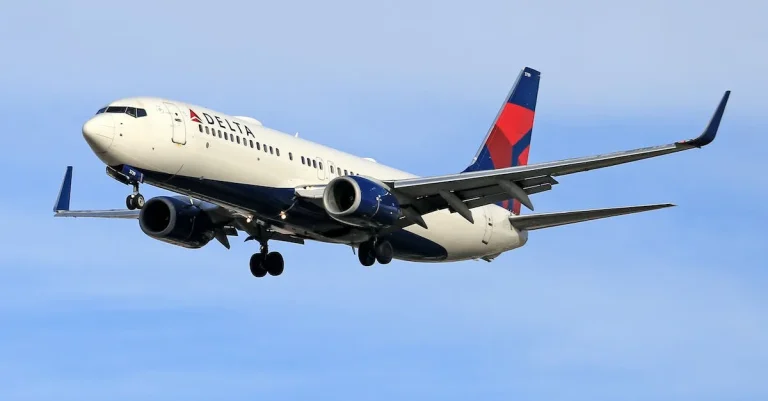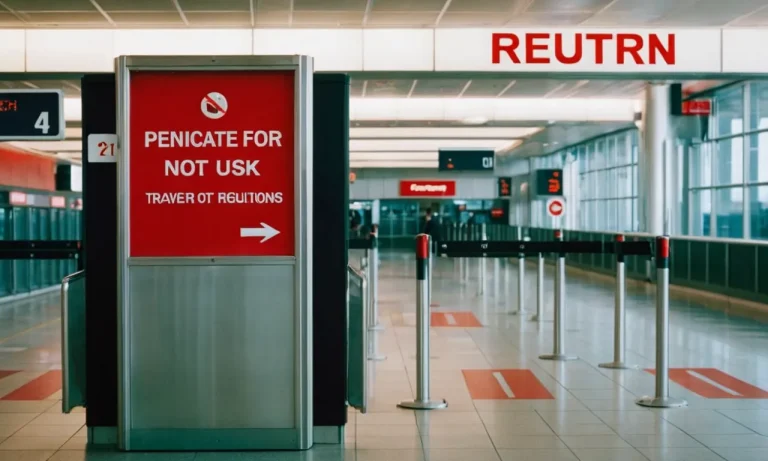Working at an airport can be an exciting career path that offers great pay and benefits. If you enjoy a fast-paced environment and want to earn a high salary, airport jobs may be perfect for you.
If you’re short on time, here’s a quick answer to your question: Airline pilots, air traffic controllers, and aviation managers are some of the highest-paying airport jobs, with salaries reaching over $100,000 per year.
In this comprehensive guide, we’ll explore some of the best high-paying airport jobs and detail what each role entails, salary information, education requirements, and more.
Whether you’re looking to begin a new career or make a change, read on to learn about lucrative airport careers that offer stability, growth, and a generous paycheck.
Pilot
A career as a pilot is often associated with prestige, adventure, and high pay. Pilots are responsible for safely operating aircraft and ensuring the comfort and safety of passengers.
There are different types of pilot jobs, each with its own set of requirements and responsibilities. Let’s explore some of the high-paying pilot roles available in the aviation industry.
Commercial Airline Pilot
Commercial airline pilots are the face of the aviation industry. They fly large passenger aircraft and transport people around the world.
To become a commercial airline pilot, one must obtain a Commercial Pilot License (CPL) and an Airline Transport Pilot License (ATPL).
These licenses require extensive training and flight hours. Commercial airline pilots usually work for major airlines and enjoy excellent salary packages, benefits, and the opportunity to travel to various destinations.
Charter Pilot
Charter pilots operate smaller aircraft and provide personalized air travel services for individuals or organizations.
Unlike commercial airline pilots who follow fixed schedules, charter pilots have greater flexibility in their work.
They often fly private jets or helicopters, catering to the specific needs of their clients.
Charter pilots may work for charter companies or as freelance pilots. This type of pilot job offers the chance to interact closely with passengers and provide a personalized experience.
Corporate Pilot
Corporate pilots are employed by corporations to fly executives, business professionals, and VIPs. They operate private jets owned by companies and are responsible for the safe and efficient transportation of their passengers.
Corporate pilots often have a close working relationship with their passengers and provide a high level of service.
This job requires a combination of flying skills, professionalism, and the ability to adapt to the needs and preferences of the passengers.
It’s important to note that becoming a pilot requires dedication, commitment, and a significant investment of time and money.
However, the rewards can be great, both in terms of job satisfaction and financial compensation.
If you have a passion for flying and are willing to put in the effort, a career as a pilot can be highly rewarding.
Air Traffic Controller
Being an air traffic controller is one of the highest paying jobs in the aviation industry. These professionals are responsible for ensuring the safe and efficient movement of aircraft in the skies.
They use their expertise to coordinate takeoffs, landings, and the flow of air traffic at airports.
Job Responsibilities
Air traffic controllers have a crucial role in ensuring the safety of passengers and crew. They monitor aircraft movements on radar screens and communicate with pilots to provide instructions and guidance.
Their main responsibilities include:
- Directing aircraft during takeoff, landing, and taxiing
- Monitoring and controlling air traffic flow
- Providing weather updates and advisories to pilots
- Managing emergency situations and coordinating with other agencies
Educational Requirements
Becoming an air traffic controller usually requires a bachelor’s degree in aviation or a related field. Additionally, candidates must complete a specialized training program at an FAA-approved facility.
This training includes classroom instruction, simulations, and on-the-job training.
Skills and Qualities
Air traffic controllers need to possess specific skills and qualities to excel in their role. These include:
- Attention to detail: Air traffic controllers must be able to accurately track multiple aircraft and relay information quickly and efficiently.
- Stress management: The job can be high-pressure, so the ability to stay calm and make quick decisions is crucial.
- Communication skills: Effective communication with pilots and other air traffic controllers is essential for ensuring safe operations.
- Problem-solving: Air traffic controllers must be able to think on their feet and make decisions in rapidly changing situations.
Salary and Job Outlook
According to the Bureau of Labor Statistics, the median annual wage for air traffic controllers was $124,540 in May 2020.
The job outlook for this profession is projected to decline by 1% from 2019 to 2029, mainly due to advances in automation and technology.
However, there will still be a need for air traffic controllers to manage air traffic in busy airports and to provide guidance during emergencies.
Aviation Manager
An aviation manager plays a crucial role in overseeing the operations and management of various aspects within the aviation industry.
They are responsible for ensuring the smooth functioning of airports and airlines, as well as managing aviation operations effectively.
This high-level position requires a strong understanding of the aviation industry, excellent leadership and managerial skills, and a keen eye for detail.
Airport Manager
An airport manager is responsible for the overall administration and management of an airport facility. They oversee a wide range of operations, including passenger services, security, maintenance, and financial management.
Airport managers work closely with various stakeholders, such as airlines, government agencies, and local communities, to ensure the efficient and safe operation of the airport.
They also handle strategic planning, budgeting, and implementing policies and procedures to meet industry regulations and standards.
Airline Manager
An airline manager plays a key role in overseeing the day-to-day operations of an airline.
They are responsible for managing different departments, including customer service, flight operations, maintenance, and marketing.
Their main focus is on ensuring that flights operate on time, customer satisfaction is maintained, and safety standards are met.
Airline managers also play a vital role in strategic planning, route optimization, and cost management to ensure the profitability and growth of the airline.
Aviation Operations Manager
An aviation operations manager is responsible for coordinating and managing various aspects of aviation operations.
They oversee the scheduling and planning of flights, allocation of resources, and monitoring of performance metrics.
Aviation operations managers work closely with airport authorities, ground staff, and air traffic control to ensure the smooth flow of operations.
They also handle emergency situations, such as weather disruptions or equipment failures, and implement contingency plans to minimize disruptions to the flight schedule.
Becoming an aviation manager typically requires a combination of education, experience, and industry knowledge.
Many managers have a bachelor’s or master’s degree in aviation management or a related field.
They often start their careers in entry-level positions within the aviation industry and work their way up through the ranks. Additionally, professional certifications and memberships in industry organizations can enhance career prospects and demonstrate a commitment to professional development.

Aircraft Mechanic
An aircraft mechanic is a highly skilled professional responsible for inspecting, repairing, and maintaining aircraft to ensure they are in safe and optimal operating condition.
These individuals play a critical role in the aviation industry, as their expertise ensures the safety and reliability of aircraft.
Avionics Technician
One specialized role within the aircraft mechanic field is the avionics technician.
Avionics technicians focus on the electrical and electronic systems of an aircraft, including communication, navigation, radar, and autopilot systems.
They are responsible for troubleshooting, repairing, and calibrating these systems to ensure they are functioning correctly.
Avionics technicians often work closely with other aircraft mechanics to perform comprehensive inspections and maintenance.
Airframe and Powerplant Mechanic
Another important role within the aircraft mechanic field is the airframe and powerplant (A&P) mechanic. A&P mechanics are trained to inspect, repair, and overhaul the structural and mechanical systems of an aircraft.
They work on the airframe, which includes the wings, fuselage, and tail, as well as the powerplant, which includes the engines and propellers.
A&P mechanics are responsible for ensuring that all components of the aircraft are in proper working order to maintain flight safety.
Both avionics technicians and A&P mechanics require specialized training and certification to perform their jobs effectively.
They often work in hangars or repair stations, and may also be called upon to perform maintenance and repairs on aircraft at remote locations.
Transportation Security Officer
If you’re seeking a high paying airport job, becoming a Transportation Security Officer (TSO) might be the perfect fit for you.
TSOs play a vital role in ensuring the safety and security of passengers, baggage, and cargo at airports across the country.
Responsibilities of a TSO
TSOs are responsible for screening passengers and their belongings using specialized equipment, such as X-ray machines and metal detectors.
They are trained to detect and identify potential threats, including prohibited items and dangerous substances.
Additionally, TSOs may be required to perform pat-downs and conduct thorough searches when necessary.
Another important aspect of a TSO’s role is providing excellent customer service. TSOs often interact with passengers, answering their questions, providing guidance, and ensuring a smooth and efficient screening process.
It is crucial for TSOs to remain calm and professional, even in high-stress situations.
Training and Qualifications
To become a TSO, candidates must meet certain qualifications and successfully complete a rigorous training program.
These requirements may vary slightly depending on the specific airport and the agency responsible for security, such as the Transportation Security Administration (TSA) in the United States.
Generally, TSO candidates must be U.S. citizens or nationals, at least 18 years old, and have a high school diploma or equivalent.
They must pass background checks, including criminal and credit checks, and undergo drug testing.
Additionally, candidates must be able to speak, read, and write English fluently.
Once selected, TSOs undergo comprehensive training that includes classroom instruction, practical exercises, and on-the-job training.
They learn about security protocols, screening procedures, and how to operate the necessary equipment.
Ongoing training and certification are also required to ensure TSOs stay up-to-date with the latest security measures.
Potential Salary and Benefits
One of the main reasons why the TSO position is considered a high paying airport job is the competitive salary and benefits package.
According to the U.S. Bureau of Labor Statistics, the median annual wage for transportation security screeners was $44,890 as of May 2020.
However, this can vary based on factors such as location and level of experience.
In addition to a competitive salary, TSOs usually receive benefits such as health insurance, retirement plans, paid time off, and opportunities for career advancement.
These benefits contribute to making the TSO position financially rewarding and attractive to many job seekers.
Conclusion
Working at an airport offers the chance to be part of an exciting industry while earning a generous salary. Jobs like pilots, air traffic controllers, aviation managers, aircraft mechanics, and TSA agents are some of the highest paying roles available.
With the right education and training, you can begin a lucrative and stable airport career that takes you to new heights, both professionally and financially.
The demand for many of these jobs is on the rise, so if you’re looking for a career change, be sure to consider the many high paying opportunities at airports.






